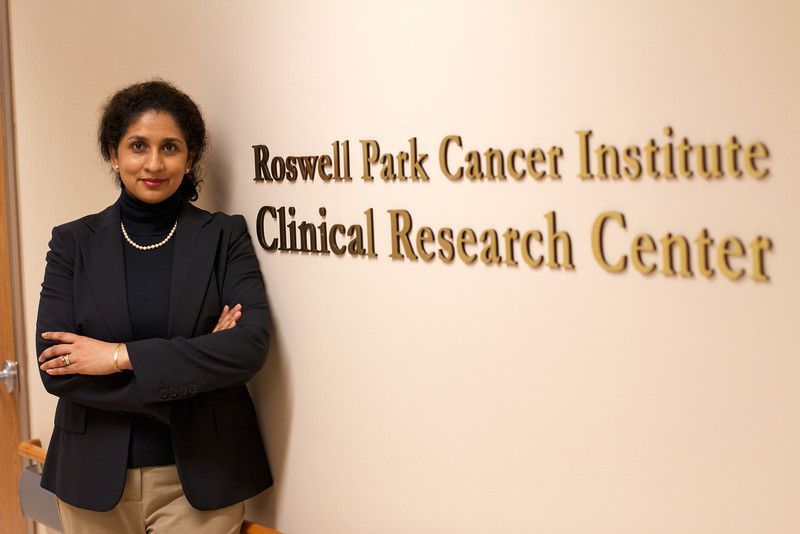by Renuka Iyer, MD
Co-Director, Liver and Pancreas Tumor Program and Section Chief for Gastrointestinal Oncology
Sorafenib is the only approved drug for patients with advanced liver cancer. Unfortunately, it is not curative and is also associated with side effects that impact quality of life. At Roswell Park, we are investigating a novel anti-angiogenic agent called tivozanib that is similar to sorafenib but with greater potency and a more favorable toxicity profile. A trial funded by the National Comprehensive Cancer Network (NCCN) that opened for accrual in 2013 will recruit 37 patients over two years at Roswell Park (lead site), Case Western and Cleveland Clinic and will evaluate the potential of tivozanib to impact the lives of patients with advanced liver cancer. Click here for more information about the study.
Predicting Who Will Benefit from Sorafenib
In collaboration with Yasmin Thanavala, PhD, Department of Immunology at Roswell Park, another focus of our research is on identifying biomarkers that could predict benefit from sorafenib. Given the cost and side effects, it would be of great benefit to develop a blood test that would enable doctors to personalize treatment options, allowing patients who are unlikely to benefit to avoid the side effects and make informed choices. In another NCCN grant-funded study, we are investigating the role of granzyme B production, an immune biomarker that may predict benefit from sorafenib.
Progress at the Bench and Bedside
This is an exciting time for the Liver Cancer Team. Other studies still in development will include immunotherapy trials and investigations into other novel therapies that we have found to be promising based on work done in our laboratories. Having recently completed a trial of optimal sequencing of sunitinib with liver-directed therapies, and with the abovementioned trials of novel agents and cutting-edge biomarker validation studies, we can offer hope through important advances in the field of HCC research, at both the bench and bedside.
